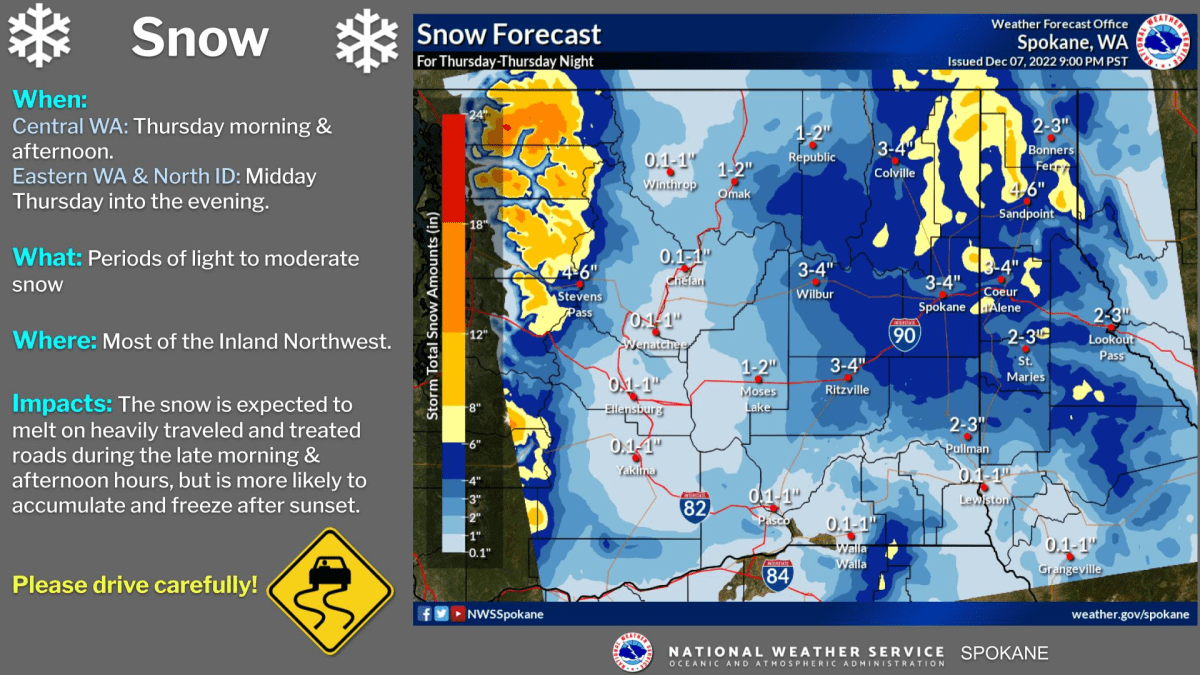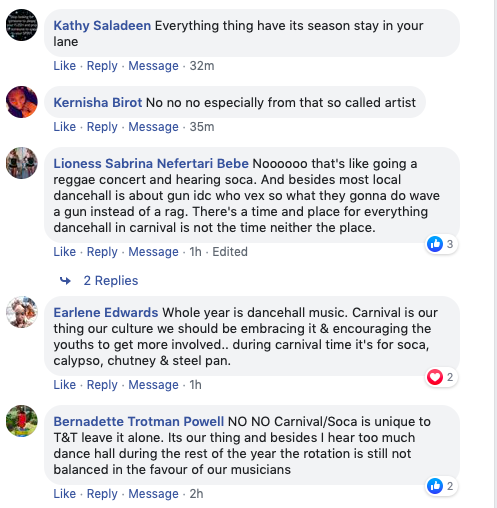Winter Weather Advisory: School Delays & Closures Guide

Table of Contents
Winter weather can disrupt daily life, and nothing throws a wrench in the works quite like school delays or closures due to a Winter Weather Advisory. This guide provides essential information on understanding winter weather advisories and how to prepare for potential school disruptions. We'll cover everything from knowing the warning signs to finding reliable information sources and creating a backup plan to handle school closings related to winter weather advisories.
<h2>Understanding Winter Weather Advisories & Warnings</h2>
Winter weather advisories, warnings, and watches are crucial for understanding the potential severity of impending storms and their impact on school schedules. Knowing the difference between these alerts is key to effective preparation.
<h3>Different Levels of Alerts</h3>
Winter weather alerts are categorized to indicate the potential severity of the impending weather:
- Winter Weather Advisory: This signifies that hazardous winter weather is possible. Conditions may cause travel difficulties, and you should be prepared for potential school delays or closures.
- Winter Storm Warning: This indicates severe winter weather is occurring or imminent. Significant disruptions to travel and school are highly likely. Significant accumulations of snow, sleet, or freezing rain are expected.
- Blizzard Warning: This is issued for severe snowstorms with sustained winds or frequent gusts of 35 mph or greater and considerable falling or blowing snow, reducing visibility significantly. School closures are almost certain under a Blizzard Warning.
- Ice Storm Warning: This alerts you to the potential for significant icing due to freezing rain, causing hazardous travel conditions and likely school closures.
<h3>Reliable Sources for Weather Information</h3>
Staying informed is crucial. Use multiple sources to confirm information and ensure accuracy:
- National Weather Service (NWS): The NWS provides official forecasts and warnings for your area.
- Local News Stations: Check your local television and radio news channels for up-to-the-minute weather reports and school closure announcements.
- Reputable Weather Apps: Numerous weather apps (like AccuWeather, The Weather Channel) provide detailed forecasts and alerts. Choose one with good reviews and reliable information.
It’s important to cross-reference information from multiple sources to ensure accuracy before making decisions based on winter weather advisories and potential school closings.
<h3>Recognizing Hazardous Winter Conditions</h3>
Several hazardous winter conditions can lead to school delays or closures:
- Icy Roads: Black ice, especially, is incredibly dangerous and makes driving conditions treacherous, impacting school bus routes and student safety.
- Heavy Snowfall: Significant snowfall can make roads impassable and prevent buses from reaching students safely.
- Low Visibility: Heavy snow or blowing snow can severely reduce visibility, creating dangerous driving conditions.
These conditions directly affect the ability of school buses to operate safely, leading to delays or closures.
<h2>Staying Informed About School Delays & Closings</h2>
Knowing where and how to find crucial information about school delays and closures is critical during a winter weather advisory.
<h3>Official School Communication Channels</h3>
Schools typically utilize several methods to inform parents and students about delays or closures:
- School Website: Many schools post delay or closure announcements on their official websites – often on the homepage or under a dedicated "News" or "Announcements" section.
- School Mobile App: Many school districts utilize mobile apps to send push notifications directly to parents' phones.
- Email: Some schools send email alerts to parents and students registered in their system.
- Local News: Local news stations often receive information from school districts regarding closures and delays and will broadcast these updates.
- Social Media: While social media can be helpful, always verify information found there with official school channels, as there's a possibility of misinformation spreading.
It is essential to regularly check these channels, especially during periods of inclement weather.
<h3>Using School District Websites and Apps</h3>
School district websites and apps often have dedicated sections for weather-related updates.
- Look for sections titled: "Closures," "Alerts," "News," or "Announcements."
- Familiarize yourself with the usual location of this information before winter arrives. This ensures quick and easy access when needed.
<h3>Leveraging Local News and Social Media</h3>
Local news channels are often reliable sources for school closure information. However, always verify updates with official school channels.
- Social Media: While social media can be a quick source of information, always verify any updates with official sources before making decisions. Rumors and misinformation can spread quickly.
<h2>Creating a Contingency Plan for School Closings</h2>
Having a plan in place will significantly reduce stress and ensure your child’s safety and well-being in the event of school closures.
<h3>Planning for Childcare</h3>
Unexpected school closures can require last-minute childcare arrangements. Have a backup plan in place:
- Family and Friends: Identify trusted family members or friends who can provide childcare.
- Daycare Centers: Check the availability of emergency or extended-day options at your regular daycare or nearby centers.
- Neighbor Networks: Consider forming a childcare network with other parents in your area for mutual support.
<h3>Preparing for Unexpected Time Off</h3>
Prepare engaging activities for your children to keep them occupied:
- Educational Activities: Plan educational games, crafts, reading time, or online learning resources.
- Indoor and Outdoor Play: Prepare indoor games and toys as well as outdoor activities (weather permitting).
- Family Time: Utilize the unexpected day off to enjoy quality family time.
<h3>Communicating with Employers</h3>
Proactive communication is key to managing school closures:
- Inform your employer as soon as possible. This allows them to make necessary work arrangements.
- Have a pre-planned strategy for handling work responsibilities while caring for your children.
<h2>Conclusion</h2>
Staying informed about Winter Weather Advisory School Closings is crucial for families. By understanding different alert levels, utilizing reliable information sources, and creating a solid contingency plan, parents and students can navigate these disruptions smoothly. Remember to check official school websites and your local news for the most up-to-date information regarding school delays and closures. Don't get caught off guard – prepare for winter weather advisories and keep your family safe and informed. Stay informed and prepare for a smoother experience with upcoming winter weather advisories impacting school schedules. Develop your own comprehensive plan to handle future Winter Weather Advisory School Closings.

Featured Posts
-
 Promoting Trade Through Dialogue Switzerland And China On Tariffs
May 21, 2025
Promoting Trade Through Dialogue Switzerland And China On Tariffs
May 21, 2025 -
 Will Abc News Show Survive Recent Mass Layoffs
May 21, 2025
Will Abc News Show Survive Recent Mass Layoffs
May 21, 2025 -
 Recent Murders Highlight Urgent Need To Combat Femicide In Latin America Colombian Model And Mexican Influencer Cases
May 21, 2025
Recent Murders Highlight Urgent Need To Combat Femicide In Latin America Colombian Model And Mexican Influencer Cases
May 21, 2025 -
 The Trump Years An Examination Of Aerospace Deal Transparency
May 21, 2025
The Trump Years An Examination Of Aerospace Deal Transparency
May 21, 2025 -
 Is A John Cena Vs Randy Orton Match Happening Bayleys Injury Explained
May 21, 2025
Is A John Cena Vs Randy Orton Match Happening Bayleys Injury Explained
May 21, 2025
Latest Posts
-
 Vybz Kartels Brooklyn Performances A Night To Remember
May 22, 2025
Vybz Kartels Brooklyn Performances A Night To Remember
May 22, 2025 -
 Minister Limits Vybz Kartels Activities In Trinidad And Tobago
May 22, 2025
Minister Limits Vybz Kartels Activities In Trinidad And Tobago
May 22, 2025 -
 Trinidad And Tobago Restricts Dancehall Stars Entry Support From Kartel
May 22, 2025
Trinidad And Tobago Restricts Dancehall Stars Entry Support From Kartel
May 22, 2025 -
 Rum Culture And Kartel Insights From Stabroek News
May 22, 2025
Rum Culture And Kartel Insights From Stabroek News
May 22, 2025 -
 The Impact Of Kartel On The Rum Industry A Stabroek News Analysis
May 22, 2025
The Impact Of Kartel On The Rum Industry A Stabroek News Analysis
May 22, 2025
